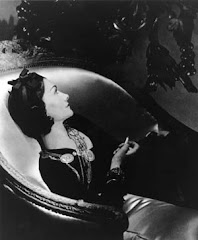Poets, artists, and men of genius in general are seldom coxcombs, but often slovens; for they find something out of themselves better worth studying than their own persons. William Hazlitt
Thursday, 14 February 2008
Subscribe to:
Post Comments (Atom)


5 comments:
And yet, I see Mr. Bellow here as rather natty - very nice wool sportcoat, spectacular tie, white shirt (if he's like my Dad, he eschewed any color darker than white because of the tendency to make him look "ethnic"), and a fedora. A fedora in need of blocking, to be sure, but a fedora nonetheless. Now, Norman Mailer or Jimmy Breslin- those were sloppy guys.
Yep, that's the point.
Saul, by the way, is one of the few big hitter Jewish novelists who took a keen interest in menswear and wrote about it. My hero!
Linda - I don't know if it was a generational thing or what it was. My father (born in 1917)was very interested in mens clothing and fabrics and colors. I do think that people from that era, were very sensitive to how they were perceived and always tried to dress the best they could. I know the very first thing he did after I got engaged to be married was to take my husband-to-be "in hand" in a men's shop and bought him a sportcoat, two pairs of pants and some white shirts.
Leonard Cohen, (better known as a poet and lyricist than a novelist) was certainly known as a natty dresser in his youth. (Saul Bellow was also originally from a suburb of Montréal, by the way).
And yes, of course that is generational and relates to location - one could never accuse Kafka or Stefan Zweig of being slobs.
And staying with secular Jews but moving away from poets and artists to other men of genius, isn't it funny how our mental picture of Einstein is always his rather dishevelled appearance towards the end of his life, when he was very well turned out indeed at the time of his greatest scientific achievements?
Post a Comment